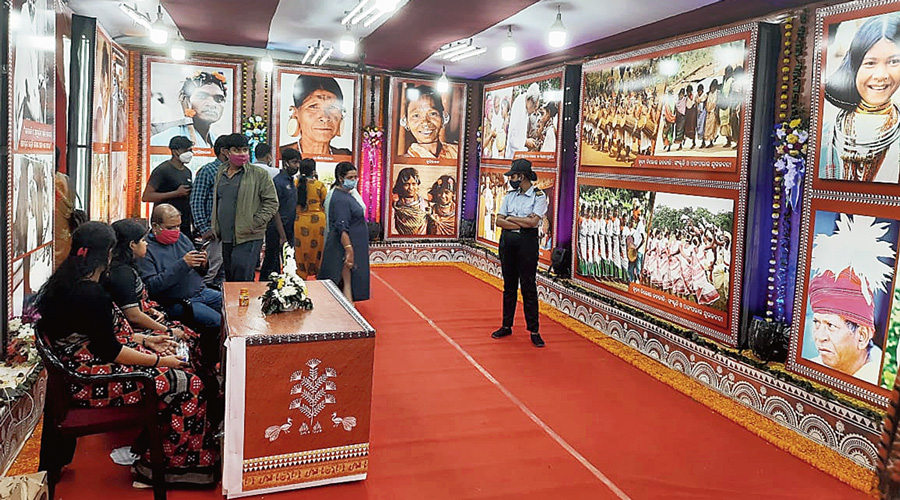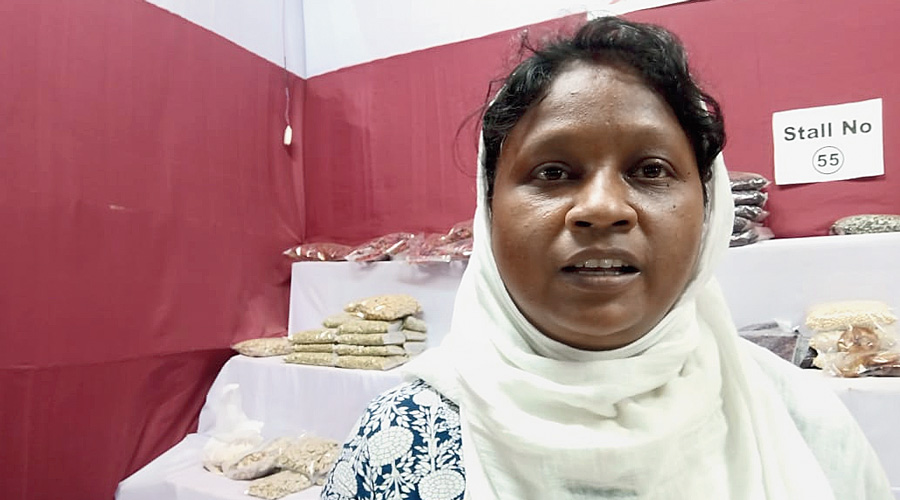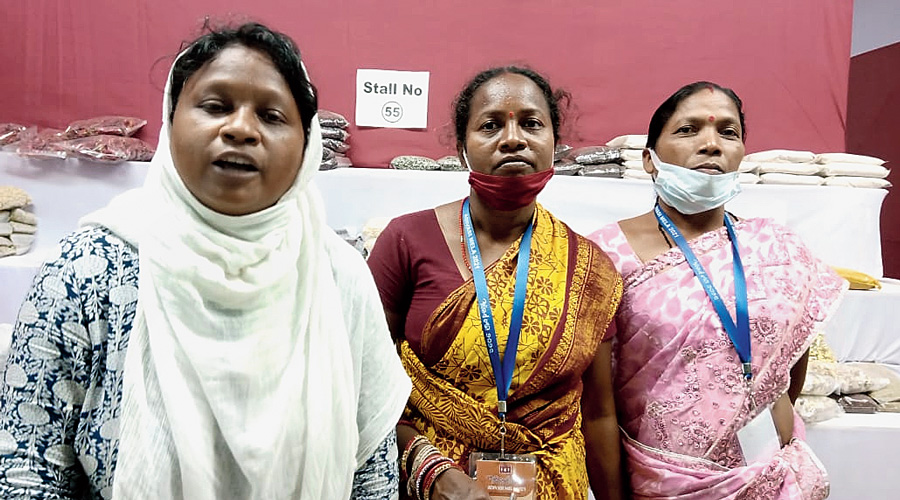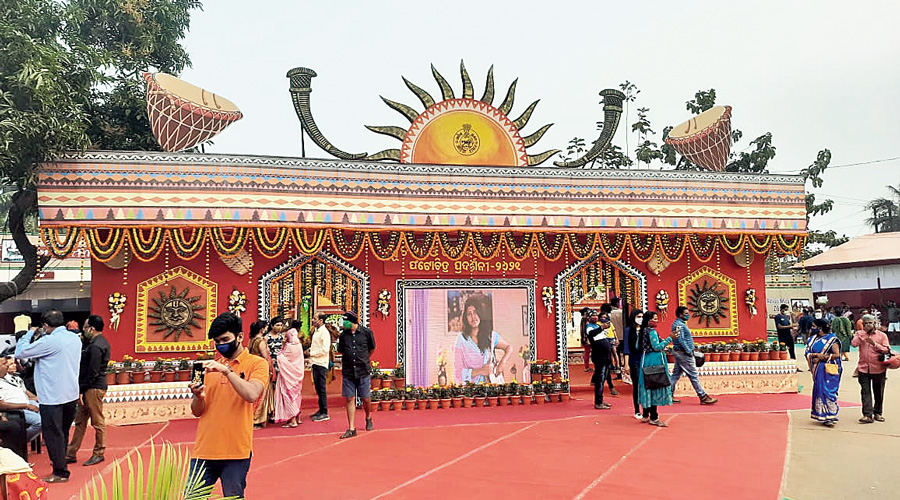The coronavirus-induced lockdown had wiped the smile off the face of 40-year-old Ambika Tope of Odisha. With her income drying up, the tribal woman was unable to pay the tuition fees of her two children — 13-year-old daughter and son, aged eight. Her husband, who works as a daily wager, had also been rendered jobless.
However, the tribal fair that concluded here on Tuesday, helped Ambika and many other tribal women to resume their earning activities. The annual fair registered business worth Rs 2 crore, according to officials. Nearly 2.5 lakh people visited the fair which commenced on January 26.

The photo exhibition stall of the Adivasi Mela. Telegraph picture
For Ambika and thousands of tribal women, who faced a tough time on the economic front because of the pandemic, the Adivasi Mela, organised by the Odisha government, came as a boon. The stalls set up by them at the fair sold a variety of products, including rice, pulses and spices and generated tremendous response.
Ambika, who hails from Jhirapani under Bisra block of Sundergarh district, said: “We faced all kinds of hardship during the lockdown. Our income dropped to zero. Shopkeepers who used to buy our products like spices stopped their purchases. I had daily arguments with my husband. He started drinking which added to our woes.”

Ambika Tope. Telegraph picture
Ambika, who was unable to buy even a packet of biscuits for her children during the lockdown, is happy that the bad phase is behind her. “Things have improved after the lockdown. Business has been much better for the last two months. Things are beginning to normalise. I have also started repaying the loan of Rs 50,000 that I had taken,” she added.
Similar is the story of Sita Khadia, who had also set up a stall at the fair. “The response was good. I am going back home with a good income. There is demand for our products such as spices and desi rice. During the lockdown I had taken a loan of Rs 1 lakh to keep my family going and to restart my business. Now things are looking much better. Lockdown was a sudden decision that hurt us like the decision to stop the circulation of old Rs 500 notes. Such decisions take people by surprise which is not good. People should be informed about such moves in advance,” said Khadia.

Ambika Tope with other tribal women at their stall in the Adivasi Mela. Telegraph picture
The fair drew people from all walks of life as typical tribal products including mandia, turmeric, raw rice and tribal jewellery were on offer.
Adivasi Tribal Language and Culture member secretary A.B. Ota told The Telegraph: “Earlier we used to set up 300 stalls every year. But this time we put up only 90 stalls because of Covid restrictions. Last year, the tribals had done business worth Rs 6 crore. But this time the business was lower compared to last year as the stalls had been reduced. Despite the Covid restrictions, the tribal women did good business. The response from visitors was good.”
Lalatendu Mohapatra, special officer, exhibition, said: “The I&PR (information and public relations) department, under the direction of secretary S.K. Singh, had put up a photography exhibition focussing on tribals which was a major attraction of the fair.”











